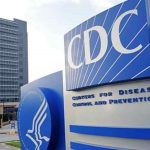CDC warns that current antibody tests may be inaccurate; “less than half of those testing positive will truly have antibodies”

Earlier today, we wrote about how antibody testing data released by the State of New York revealed that 14% of population may be infected with coronavirus. Now, the US Centers for Disease Control and Prevention (CDC) is warning not to use antibody tests yet: “It cannot be assumed that individuals w/ truly +antibody test are protected. Serologic testing should not be used to determine immune status in individuals until durability & duration of immunity established.”
A new guidance from CDC suggests that in areas where the prevalence of COVID-19 is low, “less than half of those testing positive will truly have antibodies.” CDC also says that antibodies are not accurate enough to use to make important policy decisions.
According to the new CDC guidance, antibodies most commonly become detectable 1-3 weeks after symptom onset, at which time evidence suggests that infectiousness likely is greatly decreased and that some degree of immunity from future infection has developed. However, additional data are needed before modifying public health recommendations based on serologic test results, including decisions on discontinuing physical distancing and using personal protective equipment.
Below are CDC recommendations:
Serologic test results should not be used to make decisions about grouping persons residing in or being admitted to congregate settings, such as schools, dormitories, or correctional facilities. Serologic test results should not be used to make decisions about returning persons to the workplace. Until more information is available about the dynamics of IgA detection in serum, testing for IgA antibodies is not recommended.

